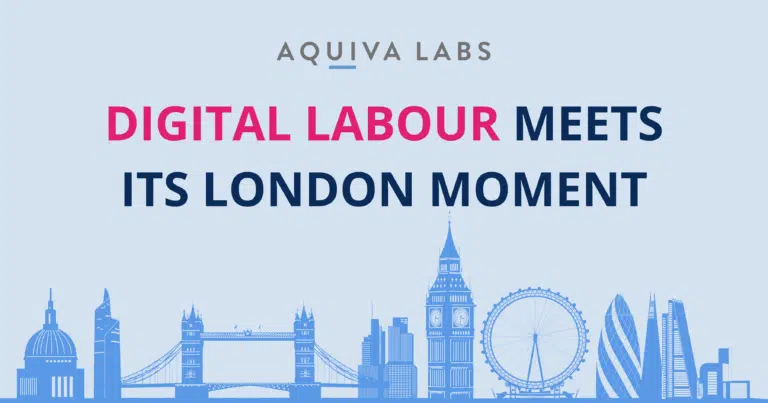Salesforce AppExchange offers an incredible opportunity for organizations of all types to connect with customers and grow their business. After all, 91 percent of Salesforce users and 100 percent of Fortune 100 companies use AppExchange to extend the value of their Salesforce investment.
However, getting an app listed in the Salesforce marketplace can be rife with challenges. And when it comes to getting a successful app into the market as quickly as possible, who you partner with matters. A lot. The right consultant will ensure that the process is as seamless as possible — and will look out for your long-term success.
The Salesforce ecosystem is flooded with consultants of every type — all with different expertise, skill levels, and credentials. So how do you choose the right consultant to partner with you in building your app? In this article, we’ll explore the different types of Salesforce consultants, what makes a Salesforce PDO stand out from the pack, and what you should look for when evaluating PDO partners.
What is a Salesforce PDO?
A Salesforce PDO — short for “Product Development Outsourcer” — is a Salesforce consulting partner with extensive experience building apps for the AppExchange.
A PDO helps independent software vendors (ISVs) with their product needs, building for them a custom solution. PDOs offer more than just Salesforce development skills. They have the demonstrated knowledge and experience to architect scalable managed packages. They also help ISVs avoid common security hazards that will hold up the review process — a process that takes approximately eight weeks once development is complete.
Why do companies need a PDO partner?
Although a PDO is not necessary for all ISVs, it does make the process more seamless and ensures that the app gets to market as fast as possible. It also helps ISVs ensure that they build an app that solves the business problem it sets out to solve.
Here are five specific instances where an ISV should consider bringing on a PDO to help with building their app for the AppExchange:
- A new startup building its MVP: An ISV that is building the first version of its package (MVP) and wants to get it right the first time can benefit from a PDO. The help of an experienced PDO enables new ISVs to build an app that users want to purchase, achieves the vendor’s business goals, and readily passes the Salesforce security review. The security review is especially stringent, so the oversight that a PDO gives is priceless. Additionally, for hybrid apps that integrate with external APIs, the scope of the security review covers all of the end points that the app connects with. A PDO will guide the ISV partner to make sure that any potential security issues with external end points are uncovered and addressed in time.
- A quickly growing business: For ISVs experiencing rapid growth, a PDO partner can be extremely beneficial. When an existing ISV needs to quickly add new features, for example, a PDO can accelerate the company’s growth by providing an on-demand team of experienced developers and QA engineers.
- Early-stage, AppExchange-based startups: A solid in-house technical department is often lacking for young, AppExchange-based ISVs that are only a few years old. As a result, these ISVs can often have technical issues, like when it comes to processing large data volumes or adding new product features. A PDO provides a valuable partnership to help overcome this technical debt to ensure success.
- Businesses wanting to integrate new AppExchange tools and techniques: Even a successful ISV may have blind spots that are holding it back. An objective PDO with extensive experience and expertise is in the perfect place to help ISVs get the most from the Salesforce platform to grow their business.
- Mature stage challenges: It’s not only early-stage or growth-stage businesses that can benefit from partnering with a PDO. With business maturity comes new challenges — and a PDO is well suited to help with those challenges. Managers who want to assess the actual situation of their products, for example — such as those who recently acquired a startup — can benefit from the expertise of a PDO.
The differences between PDO partners and System Integrators
In addition to PDOs, another type of Salesforce consultant that can help ISVs get their apps to market is System Integrators (SIs). While neither is better than the other, these two types of consultants each have their own distinctions that give them certain advantages depending on the needs of your business.
At a high level, the biggest difference between the two is their areas of specialization. PDOs’ expertise is in creating commercial apps. They are extremely product- and outcome-oriented and are comfortable dealing with ambiguity for ISVs that are not entirely certain about the app they want to build. They can guide ISVs through the product discovery process to help them create the app that would have the most success. They then continue to walk ISVs through delivery, helping strategize the best way to get in front of customers.
SIs, on the other hand, specialize as service experts. They help organizations implement and configure their Salesforce org to meet their needs.
Key differences between PDOs and SIs include:
- SIs are project-oriented, while PDOs are product-oriented.
- SIs build the solution for one business process where management can enforce its use among users. A PDO on the other hand must build an engaging solution that will help users solve their problem, delivering end-user value that leads to product adoption.
- An SI project has a set start and end of development. While a PDO has a defined start, the relationship can continue throughout the lifecycle of the product.
- SIs may be familiar with the functionalities in Salesforce, but a PDO has additional expertise in ISV technology — such as Salesforce’s License Management App (LMA), Channel Order App (COA), and Feature Management App (FMA) — to know what can actually be packaged.
What are the PDO partnership levels?
To help ISVs pick a partner that best matches their needs, Salesforce utilizes the Navigator Program to rank consulting partners. The program measures each partner’s technical knowledge, project experience, and customer success.
The levels in the Navigator Program and their qualifications are:
- Level I Navigator: This is a partner that has demonstrated expertise and consistently produces customer success. A Level I has delivered three app projects successfully in the last 18 months and has an average customer satisfaction score (CSAT) of at least 4.2.
- Level II Navigator: This partner has even more experience while demonstrating high levels of customer success. A PDO at this level has delivered ten apps successfully with an average CSAT of at least 4.4. This level also requires the completion of five Certified Developer I and II resources.
- Expert Navigator: This is the most experienced and demonstrated thought leader in the domain. They can take on the largest and most complex challenges, while still maintaining high levels of customer satisfaction. PDOs in the Navigator Program can specialize in any one of seven specific areas that align with typical product lifecycle phases — from ideation to marketing support. Expert Navigators, however, must attain four of these seven specializations, so they are well-versed in the wide variety of challenges you may face throughout the stages of product development.
Why working with an experienced partner is important
Finding the right PDO that can guide your organization through the app development process is critical for the overall success of your product. Working with an Expert Navigator means that you have a PDO with solid experience and a track record of delivering projects with high customer satisfaction and expertise.
Working with a non-Expert PDO or System Integrator partner can be a risk many ISVs are unwilling to take. It may mean that they simply haven’t had the chance to deliver on as many projects, but it could also mean that they don’t have a high level of consistent customer satisfaction or don’t have the qualifications and certificates to prove their expertise.
For those who lack the in-house skills or time to verify the quality of a PDO on their own, an Expert PDO is the safest option for a high-quality product and smooth process.
Get a PDO expert for app success
When it comes to the success of your project, an Expert PDO is essential. Compared with a SI, a PDO offers a deeper consultative relationship, helping you get a better product to market faster. An Expert PDO can even potentially save you money with internal libraries, reusable models for building apps faster, and more so that you can act quicker and more efficiently.
Choosing an Expert PDO ensures that your Salesforce partner has the knowledge and experience to guide you effectively. Even veteran teams benefit from the unique expertise — gained by building Salesforce apps for many companies just like yours — that the right PDO provides.
Just like you wouldn’t hire a plumber to fix a leaky roof, hiring the right specialist to build your Salesforce app can mean the difference between app success and failure. And when the stakes are so high — after all, today’s app performance is business performance — do you really want to leave your app to anybody but an Expert PDO?
Need help with your AppExchange solution?
Our experts can guide you through the Salesforce app development faster and easier than you ever thought possible. Contact one of our specialists today or check out Aquiva’s AppExchange listing to see how we can help make your project a success.




